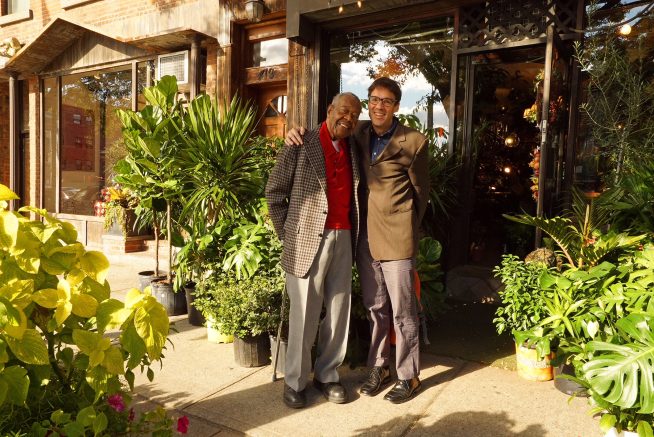New York Times Reporter John Leland spent a year with six New Yorkers, most of them in their 90s, for a series of articles he wrote for the newspaper on aging. His new book, “Happiness is a Choice You Make: Lessons from a Year Among the Oldest Old” presents the life-changing wisdom he discovered, advice which can be applied to living at any age.
At first, he found what he expected to find— the loss of health, of partners and friends, of mobility. But gradually, he saw beyond the elders’ declining health to find extraordinary resilience and satisfaction. “Each of the six was showing me ways to stop stewing in life’s problems,” Leland wrote. “But first they had to teach me to pay attention.”
When all the striving of mid-life falls away, what is left is a surprising amount of contentment. That’s good news, because as Leland writes, “Until recently relatively few people experienced this stage, and even fewer reached it in good health. But that has changed. More people are living past age eighty-five than at any time in human history (nearly six million in America, up from under a million in 1960), and they are living longer once they get there. Which means your parents are the vanguard your kids think they are.”
So, Leland asks, What do old people know that the rest of us don’t? In the second half of the book, he devotes a chapter to each of the six elders, outlining the realizations that developed in their time together.
The Lessons of Fred: “A graduate seminar in gratitude”
“The miracle of Fred was that with all his hardships, he always found reasons to feel fortunate,” Leland writes. Fred Jones was just grateful to wake up and live another day. And he never dwelt on his problems. Fred had mastered living in the moment: “One day at a time, dear Lord, one day at a time,” he said. “I didn’t think no further than today. Then tomorrow, I’ll think of that day, and that’s it.”
The lessons of Ping: Acceptance
In her 90s, Ping Wong felt that her life is better now than when she was young. After years of earning below minimum wage, she retired at close to eighty with no savings. But then she lucked into public program that provided a subsidized apartment in New York City. She lives on very little, but it doesn’t take much more than a daily game of Maj-jongg with a small circle of friends to keep her engaged and content. She doesn’t dwell on regrets. “You can’t go back,” she said. “Let bygones by bygones.”
Leland found Ping’s lessons on acceptance some of the hardest to adapt to his own life. Like so many of us, his days are filled with the activities necessary to make a living. What could he take away from Ping’s life and apply to his own?
The elders were less interested in material things and social contacts that weren’t meaningful to them. Leland cites a study where two-thirds of people over 75 agreed with the statement, “Today I have more delight in my inner world.” These are happy revelations in a society obsessed with “anti-aging” — where people fear the prospect of losing their youth and do their best to fight getting old.
Life isn’t about work.
“In my year with the elders, none spoke of their professional accomplishments— a surprise, given how much of our lives we spend either working or obsessing about work,” he writes. “This was even true of Jonah Mekas, who was still creating significant work. The elders also never mentioned obstacles they had overcome. Somehow these things no longer seemed the measure of a life.”
What Leland learned improved his own relationship with his mother, Dorothy. He learned to enjoy the time he spent with her more, and to see her caregiving as less of a project or something to be fixed.
And it transformed the way he lives his own life.
As he noted in the Times, “No work I have ever done has brought me as much joy or hope, or changed my outlook on life as profoundly.”
Leland begins the book with a quote from David Bowie: “Aging is an extraordinary process whereby you become the person you always should have been.” This book brings together wisdom to inform the way you live now, and to carry forward for tomorrow should you be lucky enough yourself to become an elder.
Click here to read more on the book from The New York Times and buy the book on Amazon here.

 Mary Robertson is Co-founder of the blog at www.thegoodlonglife.com, covering retirement, caregiving, travel, wellness and more. Follow @thegoodlonglife on Facebook, Instagram and Twitter.
Mary Robertson is Co-founder of the blog at www.thegoodlonglife.com, covering retirement, caregiving, travel, wellness and more. Follow @thegoodlonglife on Facebook, Instagram and Twitter.
Image courtesy of Nicole Bengiveno/The New York Times/Redux.












